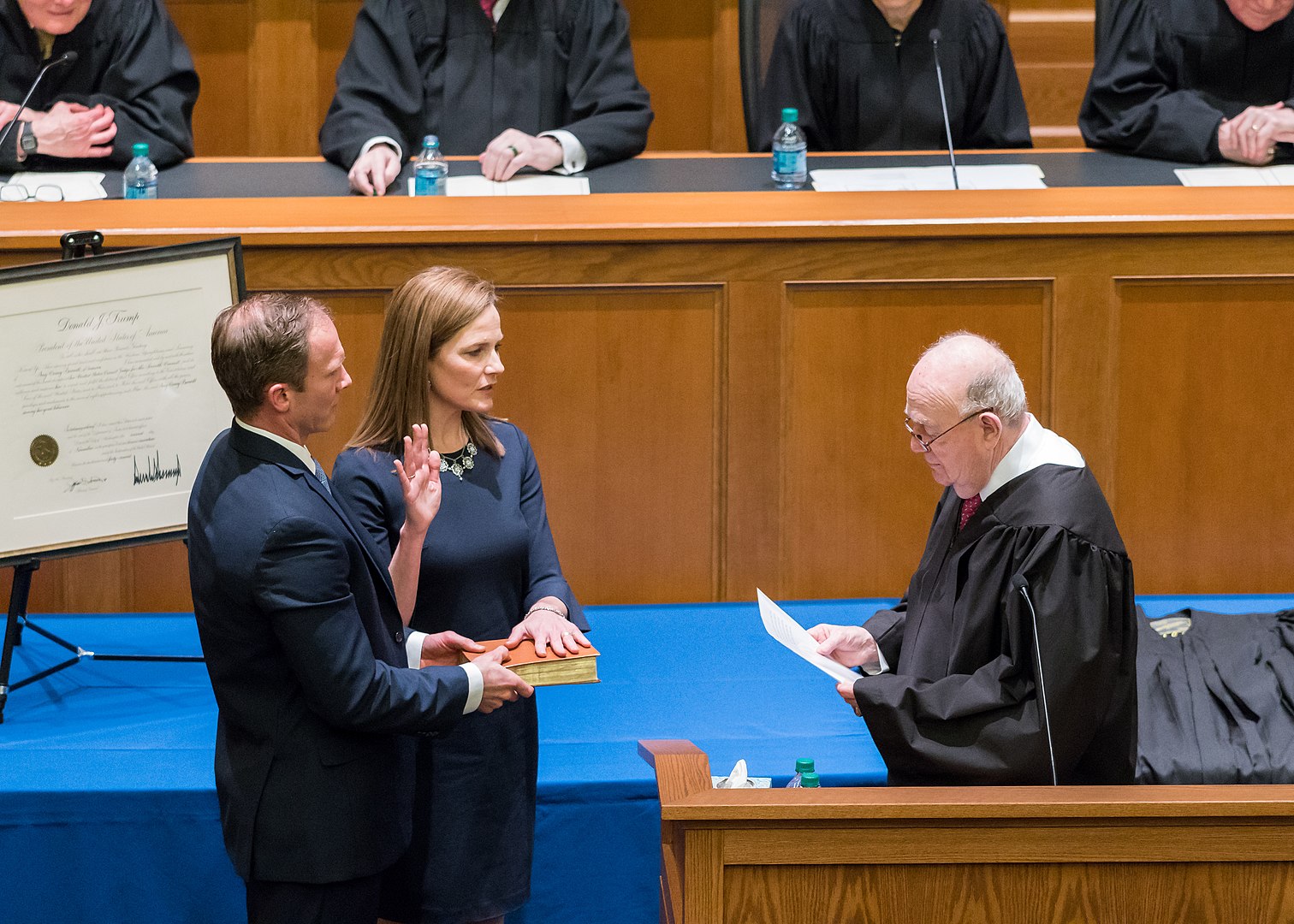How Will the Democrats Ever Bork Amy Coney Barrett?
In 1987, President Ronald Reagan nominated Robert Bork to the Supreme Court of the United States. What followed in Bork’s Senate nomination hearings was the beginning of a Democratic method for smearing and character assassination applied to any Republican court nominee. Democrats have followed this method of operation ever since. No matter how distinguished their record, no matter how sterling their character, Democrats have found ways to lie and to misrepresent any Republican Supreme Court candidate in an effort to derail their nomination.
The Act of Borking
The Bork nomination hearings were so scurrilous in their character assassinations, they gave rise to a new verb in the dictionary. The verb “to bork” was added to the Oxford English Dictionary as U.S. political slang: To bork was defined as to “obstruct (someone, especially a candidate for public office) by systematically defaming or vilifying them.” The Merriam-Webster Dictionary defines it as “to attack or defeat (a nominee or candidate for public office) unfairly through an organized campaign of harsh public criticism or vilification.” Justice Brett Kavanaugh is only the latest victim of “borking.” Other past victims include Justices Clarence Thomas and Antonin Scalia.

And guess who was the chairman of the Senate Judiciary Committee conducting the borking of Robert Bork! None other than Senator Joseph Biden! This must tell you something about the personal honor of Joe Biden. His fellow running mate, Kamala Harris, also took a prominent role in the borking of Justice Kavanaugh. Below is a PBS video of Harris trying to implicate Kavanaugh over sexual misconduct charges.
This history since Robert Bork’s hearings displays a pattern of Democratic Party conduct. We can fully expect Judge Amy Coney Barrett to be scurrilously smeared and attacked at her nomination hearings.
How, Oh, How Can Democrats Bork Amy Coney Barrett?
However, the Democratic Party will have a real problem finding a way to bork Judge Barrett. Both her professional and personal lives are beyond reproach. She graduated magna cum Laude from Rhodes College in 1994, and then first in her class at Notre Dame Law School in 1997 with a Juris Doctor summa cum laude. While at Notre Dame, she was an executive editor of the Notre Dame Law Review.
She then spent two years as a law clerk for Judge Laurence Silberman of the U.S. Court of Appeals for the D.C. Circuit from 1997 to 1998. Following that, she clerked for Justice Antonin Scalia of the U.S. Supreme Court from 1998 to 1999. She has taught constitutional and federal law at both George Washington University Law School and Notre Dame Law School. At Notre Dame, she has received the “Distinguished Professor of the Year” award not once, but three times. She has continued to teach law even as a sitting judge.
In 2017, President Trump nominated Barrett as a judge on the Seventh Circuit Court of Appeals, to which she was confirmed by the U.S. Senate.
It is not just her professional life that is remarkable. She is a mother of seven, two of which were adopted from Haiti.
How, then, can the Democrats possibly smear such a brilliant, professional, and by all accounts likable person? The only path open to them is suggested by her confirmation hearings to the Seventh Circuit. Sen. Dianne Feinstein asserted during a hearing that Barrett’s faith as a Roman Catholic should make her unacceptable as a federal judge. Below is an EWTN News video made at the time of the hearing about the controversy.
Yet, Democrats would follow that path only at great peril. They would risk alienating not just Roman Catholics, but people of all faiths. The first amendment to the U.S. Constitution declares,
Congress shall make no law respecting an establishment of religion, or prohibiting the free exercise thereof; or abridging the freedom of speech, or of the press; or the right of the people peaceably to assemble, and to petition the Government for a redress of grievances.
Religion per se would not seem to be a prohibiting factor. And Judge Barrett notes in her testimony in the video above a recourse for any judge who finds her faith at odds with her judicial duty: She can recuse herself.
How, oh, how do you bork someone who is unborkable?
Views: 2,602






























